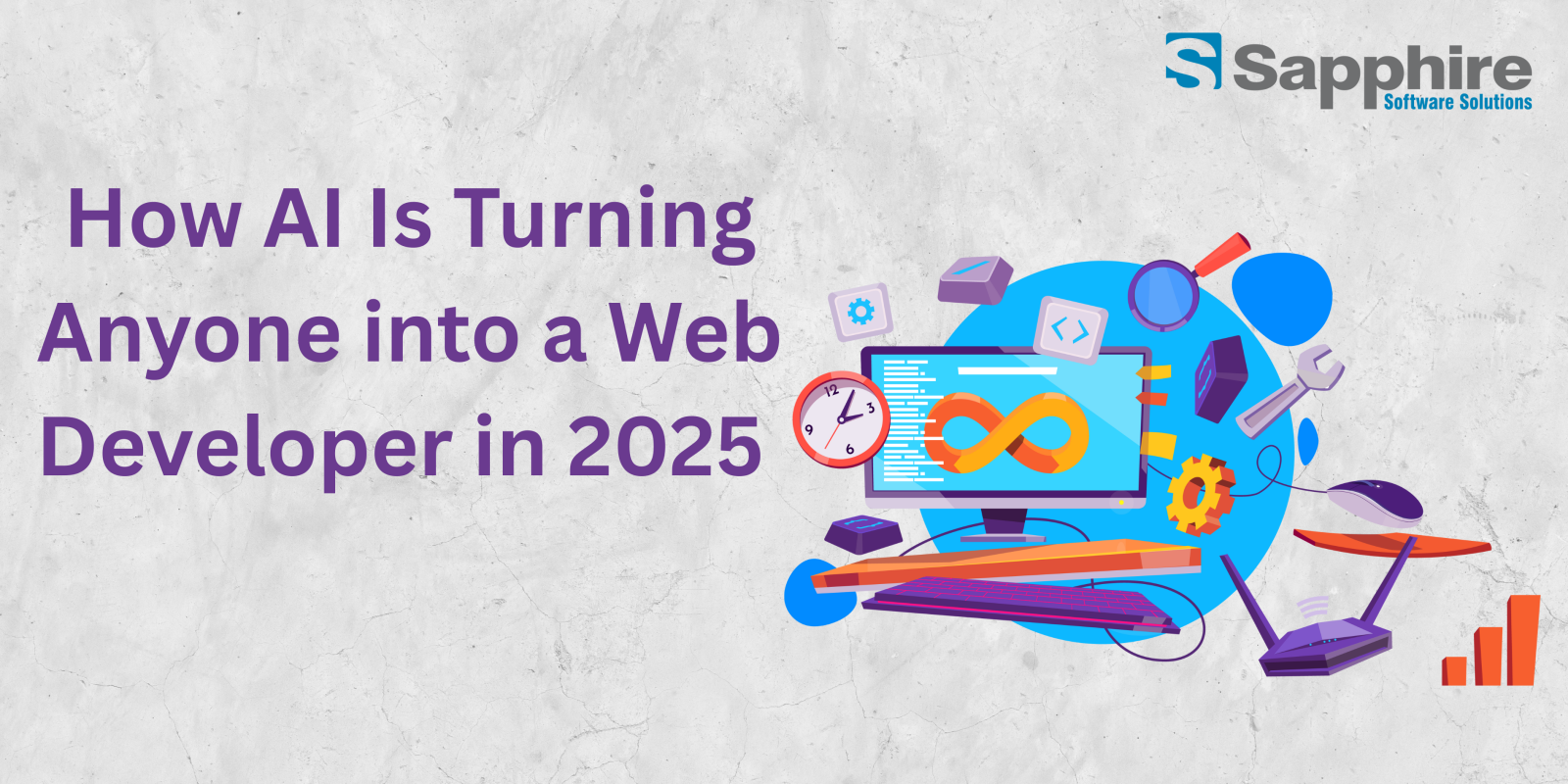Notifications
8 minutes, 8 seconds
-217 Views 0 Comments 0 Likes 0 Reviews

The digital landscape is evolving rapidly, and 2025 marks a turning point in how websites and web applications are created. Thanks to the extraordinary advancements in Artificial Intelligence (AI), the barrier to entry for web development is lower than ever before. Today, AI-powered tools are transforming even complete beginners into proficient web developers, revolutionizing the tech industry and democratizing access to digital creation.
The Traditional Challenges of Web Development
For decades, becoming a web developer meant learning complex programming languages like HTML, CSS, JavaScript, and backend frameworks. It required months, if not years, of dedicated study and hands-on experience. Moreover, Web Development Company in UK involved mastering not only coding but also design principles, user experience (UX), and debugging techniques. For many, this steep learning curve was intimidating and inaccessible.
However, as businesses and individuals increasingly need an online presence, the demand for web development skills has surged. The traditional process could not keep up with the pace, often leading to delays, high costs, and a shortage of skilled developers.
Enter AI: The Game Changer in Web Development
Artificial Intelligence development is reshaping the web development industry by simplifying and automating tasks that once required expert knowledge. AI-driven platforms and tools are now capable of handling complex coding, design suggestions, and even content creation. Here's how AI is turning anyone into a web developer in 2025:
1. No-Code and Low-Code Platforms Powered by AI
No-code and low-code platforms have been around for a while, but with AI integration, their capabilities have exploded. These platforms allow users to build websites and apps through intuitive drag-and-drop interfaces, while AI generates the underlying code automatically. For example:
AI-Assisted Design: Tools like Wix ADI and Bookmark use AI to analyze user preferences and generate tailored website designs in minutes.
Automated Coding: Platforms such as Bubble and Webflow incorporate AI to write optimized code behind the scenes, eliminating the need for manual coding.
This means users can launch functional, visually appealing websites without writing a single line of code.
2. AI-Powered Code Generators
AI code generators like GitHub Copilot and OpenAI’s Codex have revolutionized programming by assisting users in real-time coding. These AI systems understand natural language prompts and generate the necessary code snippets instantly. For web development, this is a massive boost because:
Beginners can describe what they want, such as "create a responsive navigation bar," and get the code generated.
Experienced developers save time by offloading routine coding tasks to AI.
With these tools, even non-technical users gain the power to create and customize websites through simple instructions.
3. Intelligent Website Builders with Natural Language Interfaces
In 2025, AI website builders have become highly conversational. Users can interact with these builders through chat or voice commands, describing the website they want. For example:
"Build me a portfolio site with three sections: about, projects, and contact."
"Add a blog with category filters and social sharing buttons."
The AI interprets these instructions, generates the website structure, designs the UI, and even writes SEO-friendly content. This natural language processing (NLP) capability removes the complexity of traditional web development.
4. AI-Driven Content Creation and Optimization
A great website is more than just code—it needs compelling content. AI content generators like ChatGPT and Jasper help users create engaging copy, blog posts, product descriptions, and more. They can also optimize content for SEO, ensuring the website ranks well in search engines.
By integrating AI content creation directly into web builders, users can launch complete websites with both structure and substance, all generated in a matter of hours.
5. Automated Testing and Debugging
One of the most daunting parts of web development is testing and debugging. AI-powered tools are now able to scan code for errors, run automated tests, and suggest fixes. This not only speeds up the development process but also reduces frustration for novice developers.
Tools like DeepCode and Snyk analyze codebases, identify vulnerabilities, and recommend improvements—helping users maintain high-quality, secure websites effortlessly.
Why This Matters: The Democratization of Web Development
AI turning anyone into a web developer is a monumental shift in technology democratization. Here's why it matters:
Empowering Entrepreneurs: Small business owners and startups can create their own websites without hiring expensive developers.
Boosting Creativity: Artists, writers, and creators can build portfolios and online stores, focusing more on content and less on technical hurdles.
Bridging the Skills Gap: Countries and communities with limited access to traditional education can now participate in the digital economy.
Speeding Up Innovation: Faster development cycles mean ideas can become products quicker, accelerating growth across industries.
What to Expect in the Future
By the end of 2025 and beyond, AI's role in web development will only deepen. Expect more sophisticated AI models that can:
Generate full-stack applications from a single user prompt.
Personalize websites dynamically based on visitor behavior.
Offer real-time multilingual website creation.
Integrate with emerging technologies like AR/VR for immersive web experiences.
Web development as a specialized skill may shift focus towards strategic and creative roles, with AI handling much of the routine coding and design.
Conclusion
Artificial Intelligence is truly revolutionizing web development in 2025, making it accessible to anyone with a vision and a computer. From no-code platforms to AI code assistants and intelligent content creators, these tools are breaking down barriers and empowering a new generation of digital creators.
Whether you're a hobbyist wanting to build your first website or an entrepreneur launching a startup, AI is your co-pilot on the journey. The future of web development is inclusive, fast, and exciting—and AI is leading the way.

